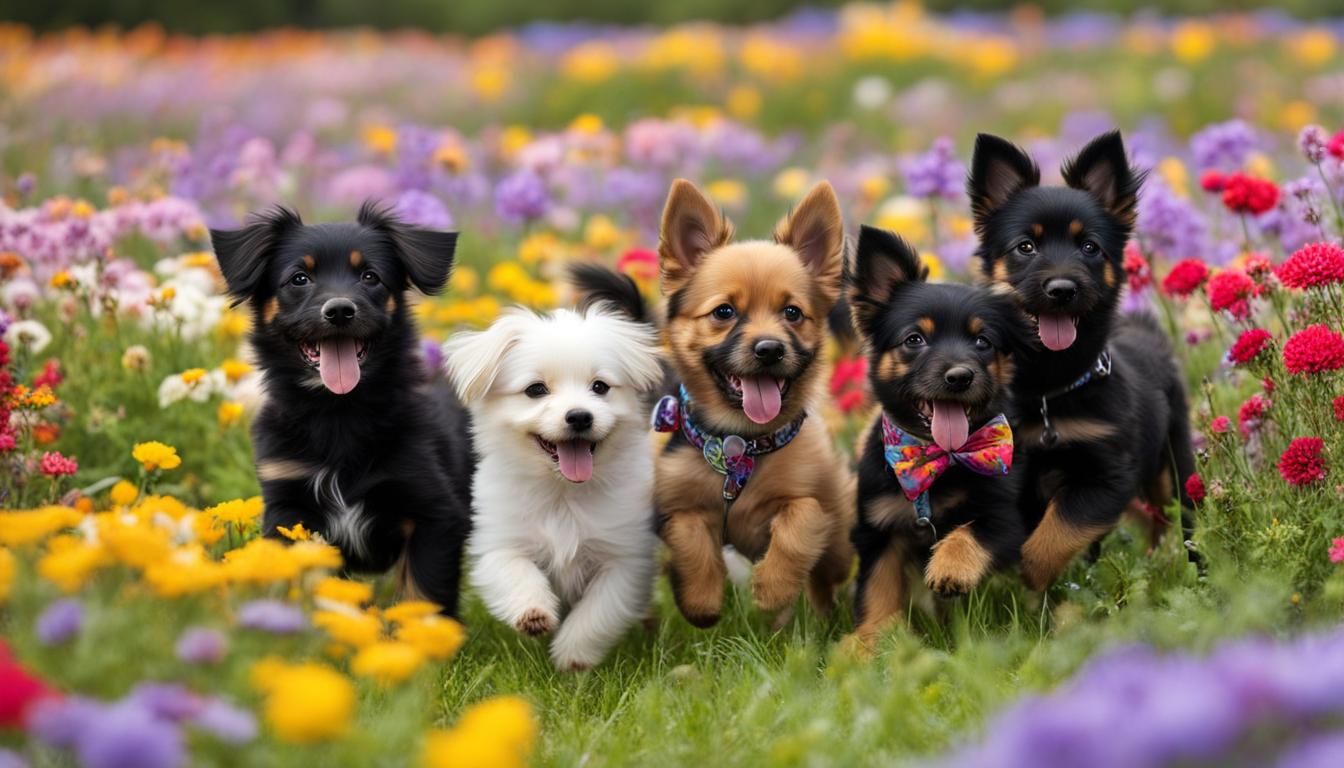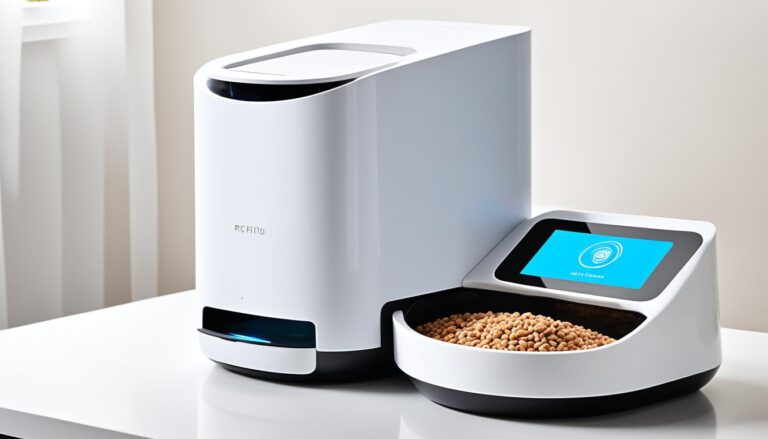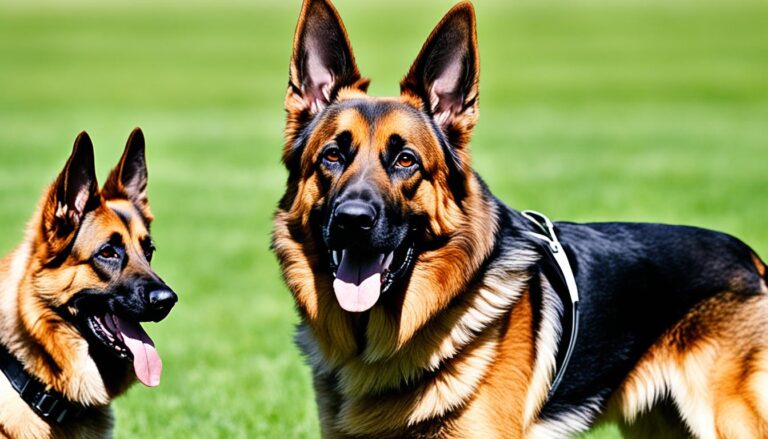Tiny Dogs: Your Ultimate Guide to Miniature Breeds
Small breed dogs have captured the hearts of dog lovers worldwide with their pint-sized cuteness and charming personalities. If you’re considering adding a furry companion to your apartment or small living space, tiny dogs are an excellent choice. Not only are they compact and easily adaptable, but they also offer a lifetime of love and companionship. In this comprehensive guide, we’ll explore the world of miniature dog breeds, including teacup dogs, and provide you with valuable insights to help you make an informed decision.
Key Takeaways:
- Small breed dogs are ideal for living in apartments or small spaces.
- They have longer lifespans compared to larger breeds.
- Consider factors such as grooming requirements, personality traits, and activity levels when choosing a small breed.
- Research and understand the specific traits of each breed before making a decision.
- Pros of owning a small dog include lower maintenance, cuddle companionship, and ease of transport.
Get to Know Some of the Smallest Breeds
When it comes to toy dog breeds, there are numerous options available, each with its own unique characteristics. Whether you’re looking for a tiny dog breed for your family or considering adopting a micro dog, it’s essential to explore the diverse world of little dogs.
“Small dogs have big personalities that can bring joy and companionship to any family.”
Here are some examples of miniature breeds that you can consider:
| Breed | Size | Temperament | Grooming Needs | Activity Level |
|---|---|---|---|---|
| Affenpinscher | Small | Fearless and Affectionate | Low | Moderate |
| Biewer Terrier | Small | Intelligent and Friendly | Moderate | Moderate |
| Brussels Griffon | Small | Loyal and Alert | High | Moderate |
| Cavalier King Charles Spaniel | Small | Gentle and Affectionate | Moderate | Moderate |
| Chihuahua | Small | Devoted and Lively | Low | High |
| Chinese Crested | Small | Playful and Energetic | Low | Moderate |
| Dachshund | Small | Curious and Brave | Low | High |
| English Toy Spaniel | Small | Docile and Affectionate | Moderate | Moderate |
| Havanese | Small | Gentle and Intelligent | Moderate | Moderate |
| Italian Greyhound | Small | Affectionate and Graceful | Low | High |
| Japanese Chin | Small | Charming and Alert | Moderate | Moderate |
| Maltese | Small | Playful and Fearless | High | Moderate |
| Miniature Pinscher | Small | Courageous and Outgoing | Low | High |
| Norfolk Terrier | Small | Alert and Sociable | Low | Moderate |
| Norwich Terrier | Small | Spirited and Affectionate | Moderate | Moderate |
| Papillon | Small | Friendly and Intelligent | Moderate | High |
| Pekingese | Small | Independent and Loyal | High | Low |
| Pomeranian | Small | Active and Alert | High | High |
| Pug | Small | Charming and Mischievous | Low | Low |
| Russian Toy | Small | Alert and Devoted | Moderate | Moderate |
These are just a few examples, and there are many other toy dog breeds available. Make sure to thoroughly research and understand the specific traits of each breed before making a decision. Whether you’re looking for tiny dog breeds for families or little dogs for adoption, finding the perfect miniature companion is an exciting endeavor.
Next, let’s explore the pros and cons of having a small dog in your family.
Pros and Cons of Having a Small Dog
Owning a small dog comes with its own set of advantages and disadvantages. Let’s take a closer look at the pros and cons to help you make an informed decision.
Pros of Having a Small Dog
- Low Maintenance: Small dogs require less food, grooming, and overall maintenance compared to larger breeds. This makes them more cost-effective and easier to care for.
- Cuddle Companions: Many small dogs are lap dogs, making them excellent cuddle companions. They love to snuggle up with their owners and provide comfort and warmth.
- Easier to Transport: Due to their compact size, small dogs are easier to transport for vet visits, outings, and travels. Whether it’s a trip to the park or a road trip, you can take your small companion along with ease.
Cons of Having a Small Dog
- Health Issues: Small dogs can be prone to certain health issues, such as dental problems, luxating patella, and respiratory issues. It’s important to be vigilant about their health and provide appropriate care.
- Fragility: Small dogs are more fragile than larger breeds, making them susceptible to injuries. They can be easily hurt if not handled with care.
- Barking Tendency: Small dogs tend to bark more frequently than their larger counterparts. This can be a concern if you live in an apartment or have neighbors who are sensitive to noise.
- Lower Endurance: Small dogs may not have the same endurance levels as larger breeds, limiting their suitability for activities that require high levels of exercise or stamina.
Ultimately, whether a small dog is the right fit for your lifestyle depends on your preferences, living situation, and ability to meet their specific needs. Consider both the pros and cons before making your decision.
| Pros | Cons |
|---|---|
| Low maintenance | Health issues |
| Cuddle companions | Fragility |
| Easier to transport | Barking tendency |
| Lower endurance |
Training and Care for Small Dogs
When it comes to training small dogs, using the right tools is essential. Opt for a harness specifically designed for small breeds to ensure their comfort and safety during walks. Additionally, consider using a crate that provides them with the appropriate amount of freedom and security while training.
Focus on teaching behaviors that are specific to small dogs, such as potty training, appropriate manners around guests, leash walking, and jumping control. Utilize high-value training treats to reinforce positive behavior and maintain their motivation during training sessions.
While small dogs require regular exercise, their needs are generally lower compared to larger breeds. Engage them in activities that suit their size and energy level, such as neighborhood walks, playful fetch sessions, and mental stimulation games. This will help keep them physically and mentally stimulated.
When it comes to their diet and medication, always consult your veterinarian and follow their guidance. Be mindful of the small bodies of your furry companion and ensure they are provided with the appropriate food portions and medications. Additionally, routine grooming care is necessary for small dogs. This includes bathing, regular brushing to prevent matting, nail trimming, and teeth brushing to maintain their oral hygiene.
FAQ
What are the advantages of owning a small dog?
Small dogs require less food, grooming, and maintenance compared to larger breeds. They are often lap dogs and make great cuddle companions. Small dogs are also easier to transport and are suitable for living in small spaces.
What are some common health issues small dogs may face?
Small dogs can be prone to certain health issues such as dental problems, patellar luxation, collapsed trachea, and obesity. Regular vet check-ups and proper care are important to maintain their well-being.
How should I train my small dog?
When training a small dog, it is important to use appropriate tools such as a harness designed for small breeds and a suitable crate. Focus on behaviors specific to small dogs, such as potty training, leash walking, and manners around guests. Positive reinforcement using high-value treats is key.
How much exercise do small dogs need?
While small dogs require regular exercise, their needs are generally lower compared to larger breeds. Activities such as neighborhood walks, fetch, and mental stimulation games are suitable for small breeds.
What grooming care do small dogs require?
Routine grooming care for small dogs includes bathing, brushing, nail trimming, and teeth brushing. It is important to follow proper grooming techniques and use products suitable for small dogs.








